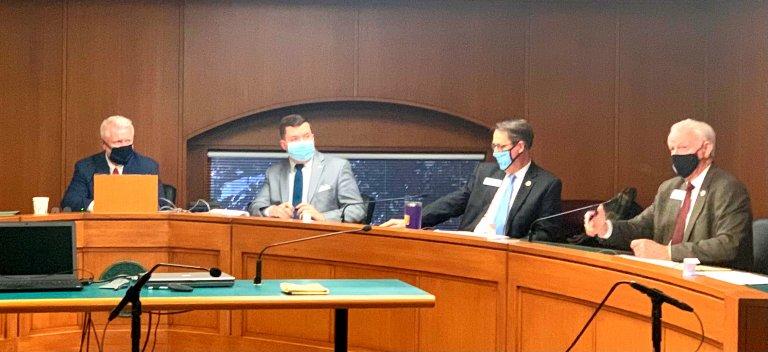
Caption
A Georgia Senate panel advanced legislation Wednesday that would eliminate the state's no-excuse absentee ballot law. It also signed off on a bill to require voters to provide ID to vote by mail and a full committee is set to consider the changes Feb. 18.
Credit: Stanley Dunlap/Georgia Recorder

